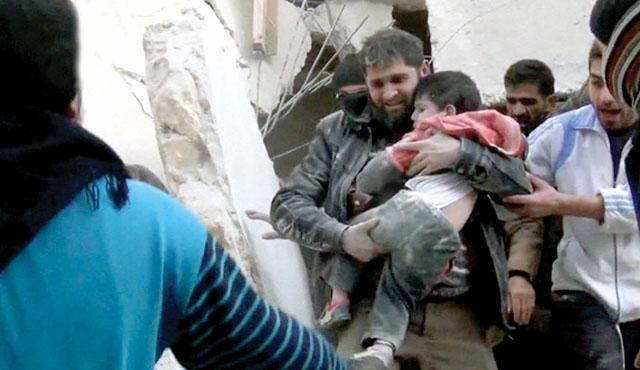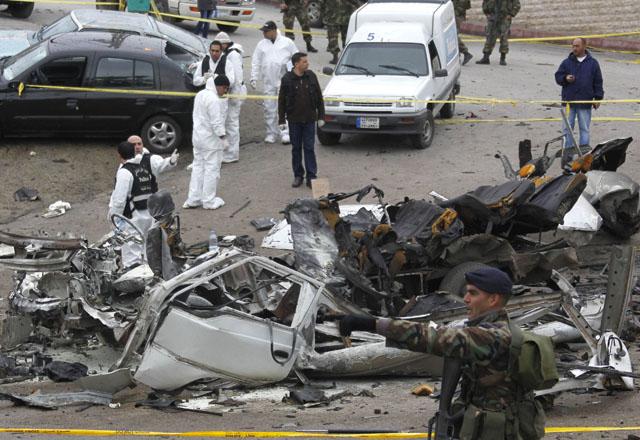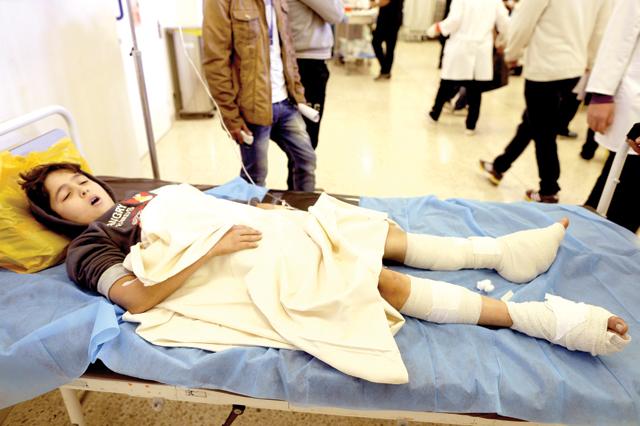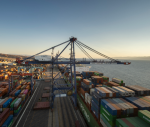BENGHAZI — A bomb rocked the playground of a primary school in Benghazi during recess Wednesday, wounding 12 children, hours after gunmen had rampaged through the streets of Libya’s restive second city.
Witnesses said the bomb was thrown over the school wall while the children were playing.
Medics said two of the injured children were in serious condition.
Benghazi, cradle of the 2011 NATO-backed uprising that toppled Muammar Qadhafi, has seen near daily attacks on security and other targets in recent months as the weak central government has tried to rein in former rebel brigades turned militias.
Six children suffering “light to moderate” injuries were admitted to the city’s Al Jala Hospital, spokeswoman Fadia Al Barghathi said.
Another medical official said six other children, two in serious condition, were taken to Benghazi medical centre.
A security official described the force of the explosion as “weak” and said a hunt was underway for those behind the attack, for which no one immediately claimed responsibility.
“Witnesses saw an individual throw an explosive device over the school wall during recess,” the official told AFP, speaking on condition of anonymity.
The attack came hours after a patrol of Libya’s Al Saiqa special forces unit was attacked by unknown gunmen during the night in the centre of Benghazi, causing no injuries.
A security official said the assailants had then attacked a sit-in being staged by a group of anti-government protesters, torching their tents and cars.
The gunmen later attacked an Al Saiqa checkpoint at Al Jala Hospital, sparking a firefight that left no injuries.
Three members of the special forces were killed in Benghazi last week in clashes with militia made up of former rebels.
The fighting erupted after the son of special forces commander in Benghazi Wanis Abu Khamada was kidnapped.
A military source said the abduction of Ali Abu Khamada was aimed at pressuring the special forces to bring about the release of prisoners held by the army.
Earlier last month, the special forces announced the arrest of four suspects in Benghazi in possession of a hit list of officers to be targeted or already killed.
Militants have also attacked foreign missions in Benghazi, including a September 2012 assault on the US consulate that killed the ambassador and three other Americans.
Eastern Libya has become a bastion of Islamist extremists, with authorities avoiding a full-blown confrontation with heavily armed former rebels pending the formation of a regular army and police force.
The uprising against Qadhafi left Libya awash in weapons looted from his vast arsenals, complicating government efforts to rein in former rebels who effectively control much of the country.
In Tripoli, Prime Minister Ali Zeidan has faced criticism from Islamist MPs demanding his resignation, accusing him of failing to improve security.
Zeidan was himself kidnapped by gunmen and held for several hours in October.
Deputy Industry Minister Hassan Al Droui was assassinated in Qadhafi’s hometown of Sirte on January 12, while the convoy of interior minister Seddik Abdelkarim came under fire last week on the road to the airport.
















